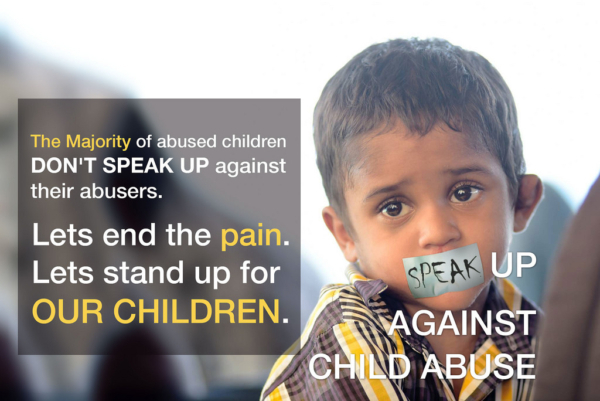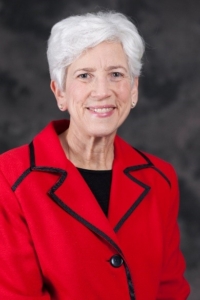

PSCP TRIFECTA
September 15, 2022 - September 16, 2022

PSCP TRIFECTA
Earn credits for all 3 mandatory workshops, Child Abuse, Suicide, and Ethics
Friday, September 16, 2022
All Day Training
Location: Online Workshop
*The Fall PSCP Trifecta is sold out, stay tuned as we will be announcing our Spring Trifecta soon*
Updated Child Abuse and Trafficking Recognition and Reporting Training for Mandated Reporters in Pennsylvania: 2021-2023 Update
Presented By: Linda K. Knauss, Ph.D., ABPP
Registration: 7:45am Program: 8:15am to 11:15am
3.0 CE credits
Act 31 Credits
Act 48 Credits Available
Important note: The Mandated Child Abuse Program is approved by the Pennsylvania State Board of Psychology, only Pennsylvania clinicians will be eligible for CE credits for this program.
In accordance with a Pennsylvania mandate for all health care professionals and funeral directors, PSCP: The Psychology Network presents this three-hour workshop to discuss the obligation of mandated reporters and the moral obligation of permissive reporters to report reasonable suspicions of child abuse and child labor and sexual trafficking.
Objectives:
- Discussing the differences between Child Protective Services and General Protective Services.
- Describing components of Child Abuse and Exclusions to Child Abuse.
- Listing common signs of Child Abuse and Sexual Abuse.
- Describing Mandatory and Permissive Child Abuse Reporters and penalties for not reporting.
- Describing Sex and Labor Trafficking and Methods of Reporting
 Linda K. Knauss, Ph.D., ABPP, is a professor at Widener University’s Institute for Graduate Clinical Psychology. She has served as the Chair of the Ethics Committees of the American Board of Professional of Professional Psychology, the American Psychological Association, the Pennsylvania Psychological Association and as Co-chair of the Philadelphia Society of Clinical Psychologists’ Ethics Committee. Dr. Knauss has authored several book chapters and journal articles on ethics and has taught ethics at many local universities as well as continuing education workshops on a variety of topics in ethics.
Linda K. Knauss, Ph.D., ABPP, is a professor at Widener University’s Institute for Graduate Clinical Psychology. She has served as the Chair of the Ethics Committees of the American Board of Professional of Professional Psychology, the American Psychological Association, the Pennsylvania Psychological Association and as Co-chair of the Philadelphia Society of Clinical Psychologists’ Ethics Committee. Dr. Knauss has authored several book chapters and journal articles on ethics and has taught ethics at many local universities as well as continuing education workshops on a variety of topics in ethics.
Dr. Knauss is the past-president of the Pennsylvania Psychological Association, the Pennsylvania Psychological Foundation, and the Philadelphia Society of Clinical Psychologists. She was also a member of the American Psychological Association’s Council of Representatives (2000-2006; 2013-2018 representing Pennsylvania). Dr. Knauss is the recipient of a 2015 APA Presidential Citation for her work in APA as well as the recipient of the 2002 Ethics Educators Award presented by the Pennsylvania Psychological Association’s Ethics Committee, and the recipient of the 2004 Pennsylvania Psychological Association Distinguished Service Award.
Dr. Knauss maintains a private practice where she sees children, adolescents, adults and families.
PSCP: The Psychology Network is approved by the Pennsylvania State Board of Psychology to offer continuing education for psychologists. PSCP: The Psychology Network maintains responsibility for this program and its content.
Theory of Suicide, Statistical Updates, Risk factors, and Warning Signs: An Overview
Presented By: Kyle Holsinger, Psy.D.
Registration: 11:15am Time: 11:45am to 12:45pm
1.0 CE Credits
The following presentation is an overview of theory, statistical trends in suicide, and identification of at risk populations. Thomas Joiner and colleagues theoretical underpinnings of suicide will be discussed, as well as risk factors and warning signs of suicide. Additional factors will be discussed including the impact of suicide on at-risk populations, the unique circumstances of telehealth in treatment, as well as the impact of COVID on psychologists and clients in clinical practice. Discussion may be limited due to the brevity of this one hour presentation.
Objectives:
- Describe and incorporate the Interpersonal Theory of Suicide (Joiner and colleagues) into assessment and practice.
- List and describe current trends in suicide and describe variety of populations, ages, and gender of those at risk for suicide.
- Describe and articulate the differences between Risk factors and Warning Signs of Suicide.
 Kyle Holsinger is a Pennsylvania licensed psychologist, and he received a Doctorate of Psychology degree from the Philadelphia College of Osteopathic Medicine in 2005. He is the former Executive Director Clinical Director at Delaware County Professional Services (DCPS). He developed the practice’s Primary Health Care Integration program, and has collaborated and presented with numerous internal medicine, family medicine, pediatric offices, and specialty care practices.
Kyle Holsinger is a Pennsylvania licensed psychologist, and he received a Doctorate of Psychology degree from the Philadelphia College of Osteopathic Medicine in 2005. He is the former Executive Director Clinical Director at Delaware County Professional Services (DCPS). He developed the practice’s Primary Health Care Integration program, and has collaborated and presented with numerous internal medicine, family medicine, pediatric offices, and specialty care practices.
Dr. Holsinger has a special interest in treating populations with chronic medical conditions. He has presented at numerous conferences and community programs in the areas of school risk assessment, primary healthcare integration, and suicide awareness and prevention topics.

Ethics and Risk Management When Your Client is Involved in Family Law Issues
Presented By: Steven R. Cohen, Ph.D. and Jane Iannuzzelli, Med., MA
Registration 1pm Program: 1:30pm to 4:30pm
3.0 CE Credits
Act 48 Credits Available
We cannot predict when and if our clients become involved in Family Law issues. Whether we are treating an adult, a child, or a family; there is a high likelihood that at some point in our career we will become involved in legal and court related issues. This could range from a simple request for records, to writing reports, and possibly testifying in court. If we are not informed about the legal and ethical standards when dealing with these situations, we could make an inadvertent error and face an ethics or Board complaint. This workshop will help you identify the ethical and practice standards when dealing with clients who are involved in Family Law issues, and educate you about best practices in dealing with attorneys and the courts.
Objectives:
- Identify the sources of ethical and practice standards when dealing with clients who are involved in family law issues.
- Identify actions that they should and should not take when dealing with attorneys and the courts.
- Analyze how to maintain their duty to the client while responding ethically to attorneys and the court.
- Understand the roles of a Forensic Expert, a Treating Expert, and a Fact Witness.

 Steven Cohen and Jane Iannuzzelli have been involved in Family Law issues for many decades. This work has involved Custody Evaluations, Court Ordered Co-Parenting Counseling, Reunification Counseling, Individual Counseling for people in the process of separation and/or divorce, Parenting Coordination, Court Ordered Mental Health Evaluations, consultation with attorneys, and many years of testifying in Court. They are founding members of the PPA Child & Family Forensics Committee. They are also founding members of a peer support for psychologists involved in Family Law matters. Steven Cohen is a Past President of PSCP and a Past President of PPA. He was Chair Of the Ethics Committee of PSCP and Chair of the Ethics Committee of PPA. In addition he is a former Chair of the Pennsylvania Board of Psychology.
Steven Cohen and Jane Iannuzzelli have been involved in Family Law issues for many decades. This work has involved Custody Evaluations, Court Ordered Co-Parenting Counseling, Reunification Counseling, Individual Counseling for people in the process of separation and/or divorce, Parenting Coordination, Court Ordered Mental Health Evaluations, consultation with attorneys, and many years of testifying in Court. They are founding members of the PPA Child & Family Forensics Committee. They are also founding members of a peer support for psychologists involved in Family Law matters. Steven Cohen is a Past President of PSCP and a Past President of PPA. He was Chair Of the Ethics Committee of PSCP and Chair of the Ethics Committee of PPA. In addition he is a former Chair of the Pennsylvania Board of Psychology.
PSCP: The Psychology Network is approved by the American Psychological Association to sponsor continuing education for psychologists. PSCP: The Psychology Network maintains responsibility for this program and its content.


